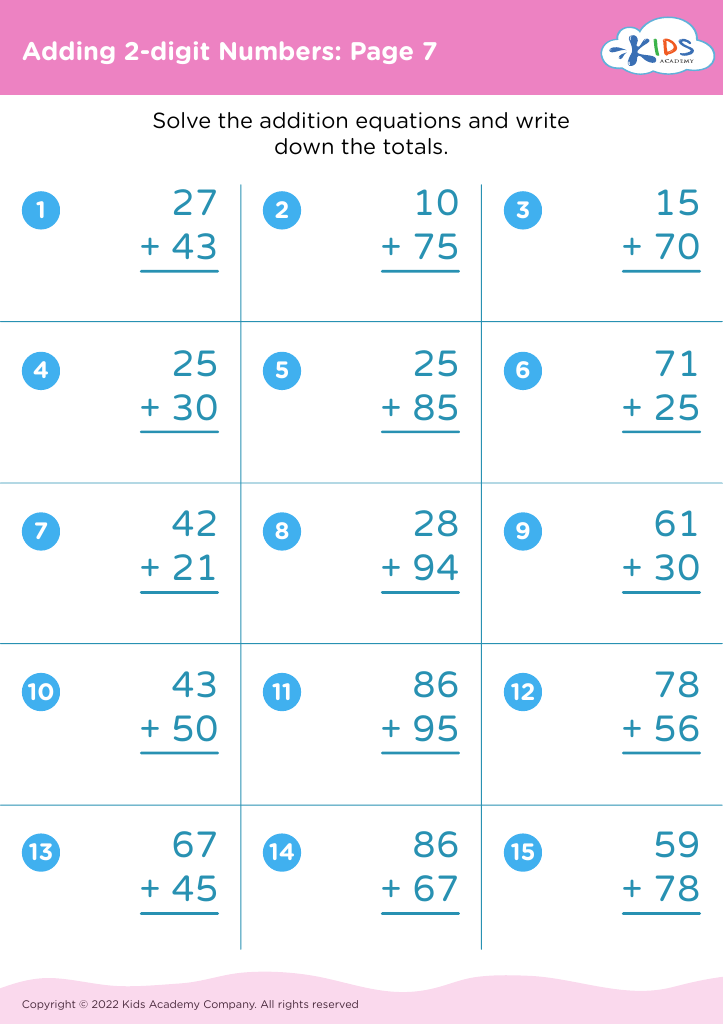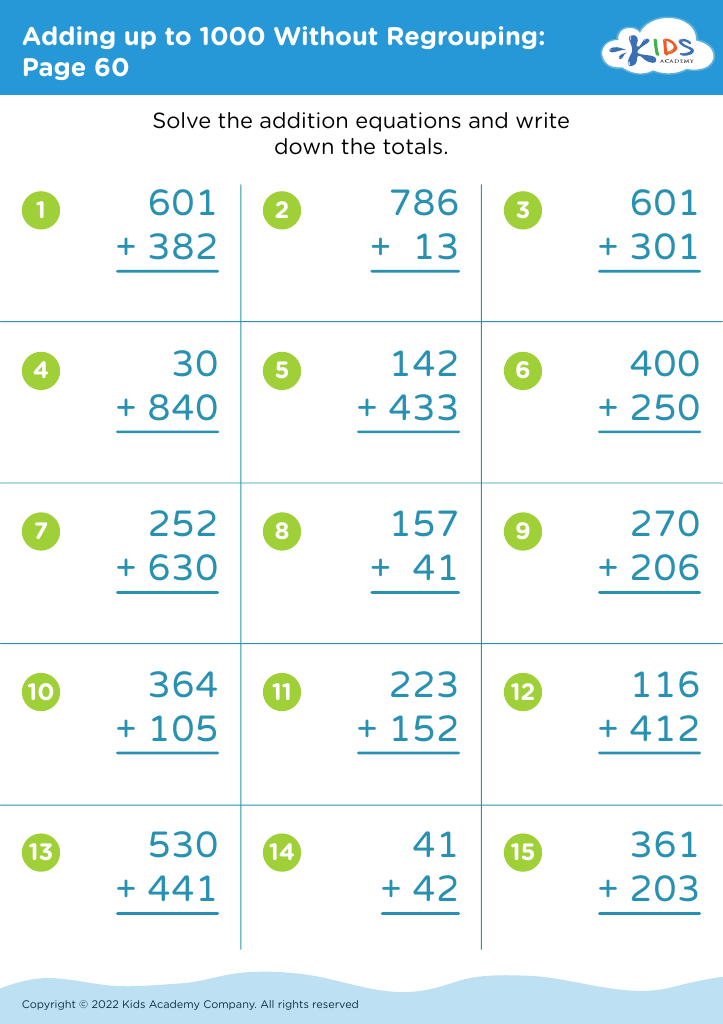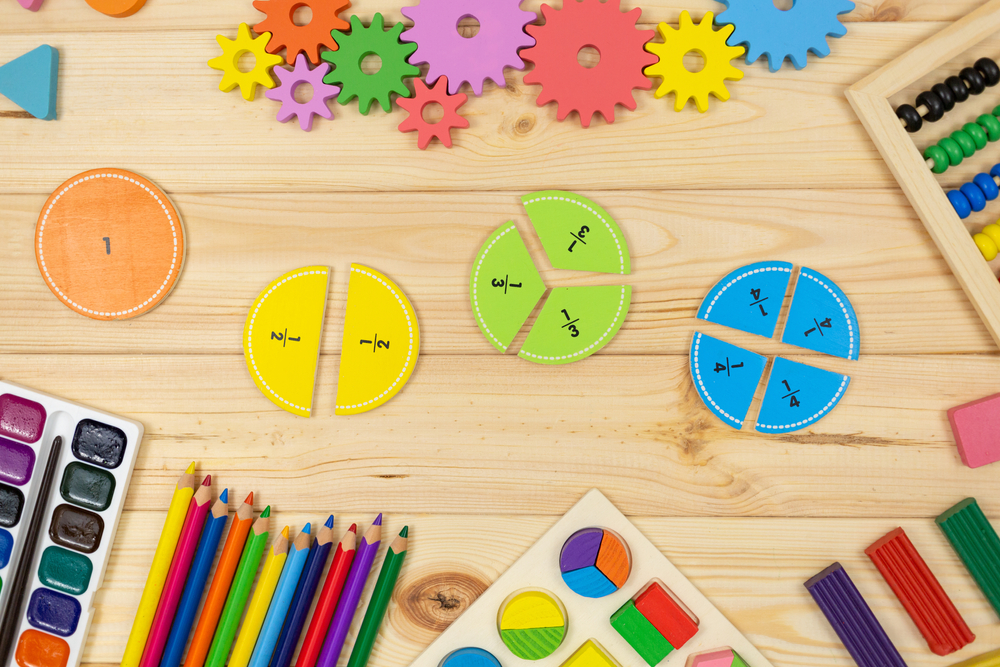Learn addition Math Worksheets for Ages 3-7
3 filtered results
-
From - To
Discover our engaging Learn Addition Math Worksheets designed specifically for children aged 3 to 7! These printable resources help little learners develop essential addition skills through fun activities and colorful visuals. Our worksheets cater to various learning levels, promoting confidence and mastery in basic math concepts. Kids will enjoy practicing their addition skills with interactive exercises that support their cognitive growth and early numeracy. Ideal for both classroom and home use, these worksheets cultivate a love for math while ensuring educational development. Start your child's mathematics journey today and watch them flourish in their arithmetic abilities!
Parents and teachers should prioritize teaching addition to children aged 3-7 because this foundational skill is crucial for future academic success and everyday problem-solving. Early exposure to addition helps children develop critical thinking and cognitive skills. Understanding basic addition not only enhances numerical fluency but also boosts confidence in handling math-related tasks as they progress in school.
Learning addition at this young age encourages an interest in mathematics, making future learning experiences more enjoyable. Children begin to recognize patterns and relationships between numbers, fostering strong analytical skills that are beneficial across various subjects, including science and technology.
Additionally, engaging in math activities can promote social skills when children work together in group settings. These interactions allow them to learn from their peers and develop collaborative skills essential for adulthood.
Moreover, mastering addition supports life skills such as budgeting, time management, and cooking, enhancing children’s independence and practical understanding of the world around them. Ultimately, investing in early math education sets the stage for lifelong learning, paving the way for future opportunities and success in an increasingly data-driven society. Encouraging addition through interactive and fun activities at home and in school nurtures both academic and personal growth for young learners.



















